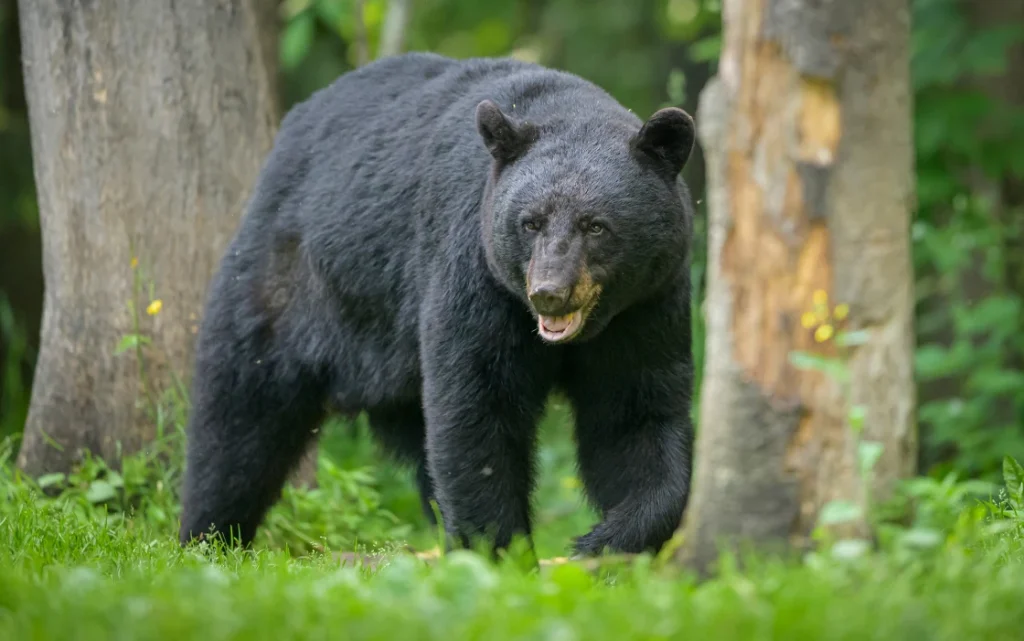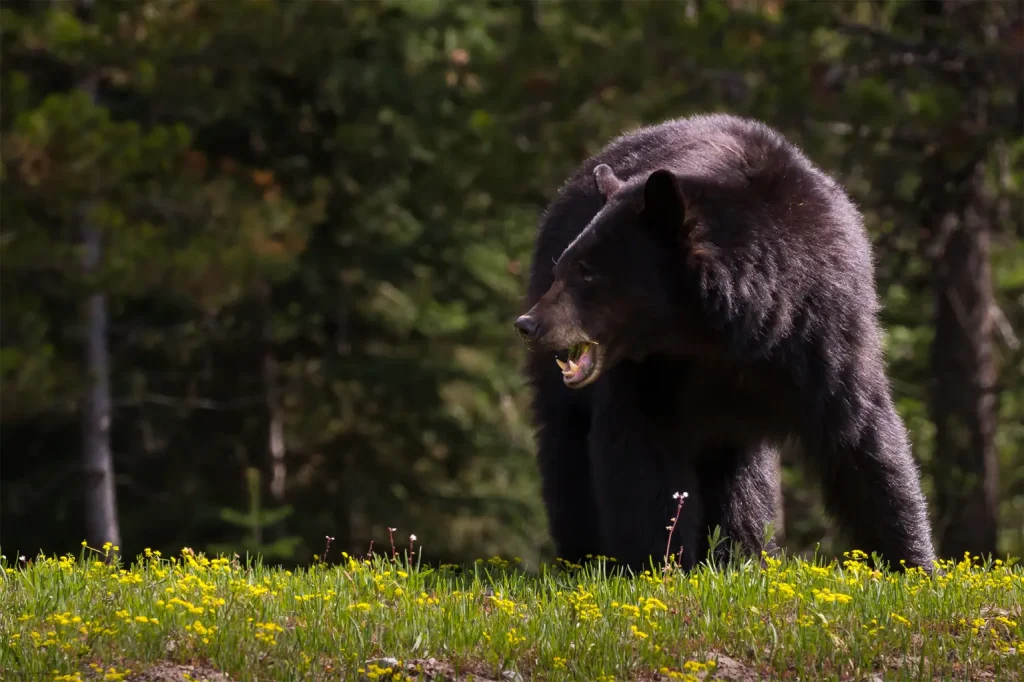Thanks to “ninja moves,” a Jack Russell terrier saves his owner from a bear attack.
According to a Vermont Fish & Wildlife Department news release, a 61-year-old Vermont woman was saved from a black bear that was biting her leg when her Jack Russell terrier began barking and drew the bear’s attention.
Susan Lee told wildlife officials that she was walking her two dogs, a Jack Russell terrier and a labradoodle, on a trail on her property in Strafford on Aug. 20 when she heard a “loud noise” and a black bear charged her, causing her to trip over a stone wall.

The bear had bitten her, she realized when she felt “pain on her upper left leg.” When her Jack Russell terrier began barking at the bear, the attack was stopped.
The barking distracted the bear, allowing Lee’s leg to be freed. She and her dogs were able to make it further down the trail before calling 911. A neighbor assisted in transporting her to Gifford Medical Center, where she was treated and released for non-life-threatening injuries.
According to a news release, Lee had a bit wound on her left leg and multiple scratches ranging from two to nine inches long on both legs.

Wildlife officials determined the bear was a female with cubs who had been surprised by Lee and her dogs and had been provoked. They were unable to locate the bear.
We’re on Facebook now!
Lee’s Jack Russell terrier suffered no injuries. The dog stayed safe by performing what Game Warden Sgt. Jeffrey Whipple described to USA Today as “ninja moves.”

“If I had to guess what would have happened if the dog hadn’t been there, I think the bear would have done more damage to (Lee),” Whipple said. “However, once she was knocked down and out of the fight, the bear would have gotten off her and retreated.”
According to the Vermont Fish & Wildlife Department website, Vermont has one of the densest black bear populations in the country, with one bear for every three square miles.
There are approximately 6,000 in Vermont, and it is the only type of bear found there. The animals are shy and rarely seen by humans, making the attack on Lee “extremely rare,” according to Wildlife Department bear biologist Jaclyn Comeau. There have only been three previous bear attacks in the state, according to the department.

However, black bears are moving in family units at this time of year, and mothers will be protective of their cubs, Comeau said in a statement. “When confronted by a bear, it is critical to remain calm and slowly back away, and to fight back immediately if attacked.”
Read more from us: Michigan officials are investigating a mysterious canine parvovirus-like disease after more than 30 canines died.





